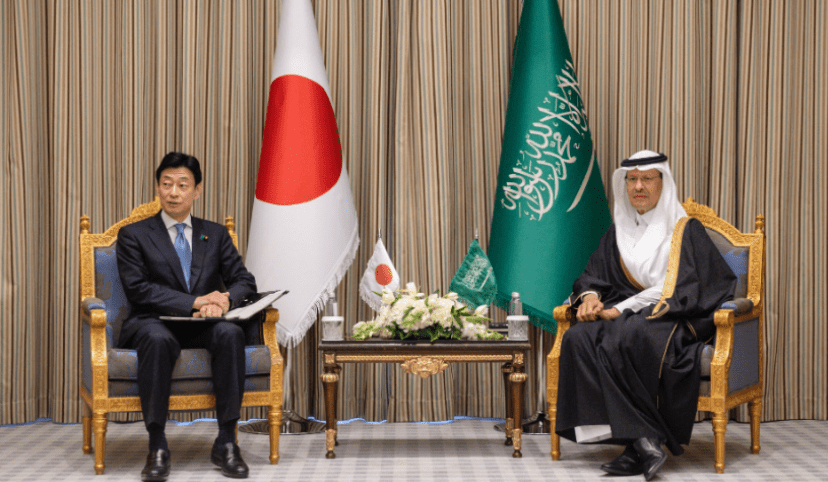Saudi Arabia, Japan sign agreements on circular carbon economy, clean hydrogen, fuel ammonia

Saudi Arabia and Japan stressed the importance of supporting the stability of global oil markets by encouraging dialogue and cooperation between producing and consuming countries. Both countries stressed the need to ensure safe supplies from all energy sources to global markets.
This came during Prince Abdulaziz bin Salman bin Abdulaziz, Saudi Minister of Energy, and Nishimura Yasutoshi, Japanese Minister of Economy, Trade, and Industry, on Sunday, holding the first ministerial meeting of the “Saudi-Japanese Ministerial Dialogue for Energy” in Riyadh.
During the meeting, the two ministers affirmed that the Kingdom is the largest reliable source of crude oil supplies to Japan. They also affirmed that they are a reliable partner in this aspect. Yasutoshi drew attention to Saudi Arabia’s continuous efforts to enhance the stability of global oil markets.
The two ministers welcomed the new extension of cooperation in the field of strategic storage, between the Ministry of Economy, Trade, and Industry of Japan and Saudi Aramco. Further, the companies signed two memoranda of cooperation in the fields of the circular carbon economy, carbon recycling, clean hydrogen, ammonia fuel, and derivatives thereof.
They stressed that to reach carbon neutrality, it is necessary to focus on emissions rather than energy sources. This is done through the effective application of the circular carbon economy approach and carbon recycling technologies.
Both sides see the importance of Japanese companies’ investments and their participation in this market. To diversify global supply chains, through localization strategies that build on relevant comparative strengths.
Moreover, the two sides discussed opportunities for cooperation in the field of petrochemicals. They also discussed the Kingdom’s recent announcement of ambitious plans to increase its petrochemical production capacity, by converting liquids into chemicals. In addition, they increased integration between all elements of the value chain. The two sides also expressed their desire to continue cooperation in the fields of electricity, renewable energy, energy efficiency, and innovation.





